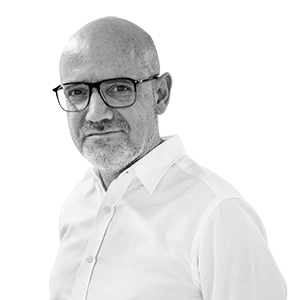The files that could complicate the PP congress in Feijóo
The party leader instructs an Ayusista to lead the organization of the "conclave" in which he will have to carry out internal balancing acts.

MadridAlthough Pedro Sánchez warned Alberto Núñez Feijóo in his weekly face-to-face meeting in Congress that in a "conclave" one must be careful because "Pope comes in, cardinal comes out"Among the agendas for the PP congress—which the PP leader himself compared to last week's meeting at the Vatican—will not be, at least openly, the question of his succession. Within the party, everyone assumes there will be no alternative candidate with a chance of unseating the current PP president, who will be given a second chance to defeat the Socialist leader in a Spanish election and reach the Moncloa Palace. However, although no fratricidal struggle to take the leadership of the party is expected—unlike what happened in 2018 with the battle between Pablo Casado, Soraya Sáenz de Santamaría, and María Dolores de Cospedal—it does open up a key moment for the sectors that comprise the PP to try to gain influence.
In Genoa, Feijóo's team maintains secrecy and refuses to advance the official position on the debates they will have to address in the meeting on July 4, 5 and 6 in MadridUntil now, Feijóo has avoided setting a clear ideological line and has been characterized by vagueness. They now proclaim that they are not afraid of engaging in any debate and are backing this up with the announcement that the meeting will be held for three days instead of two, precisely to "facilitate it" and "be able to give more intense voice to PP members and officials" in order to update statutes that, since 2017, are still likely to lean toward more radical positions.
On Monday of next week, Feijóo will present to the national executive board, the party's highest body between congresses, the names of the people he has decided to entrust with drafting the reports that will be voted on at the 21st congress. Control of a congress that could easily be poisoned and that the PSOE is already using as a weapon against the leader of the opposition could slip from his grasp.
A nod to the Madrid PP
Feijóo has already announced that he will renew the party's leadership with the aim of forming a team as prepared as possible to compete electorally against Sánchez and to take the leap into the Spanish government. One of the uncertainties is how the different internal spirits and families will fit together. The party's current organizational structure combines, for example, a moderate number two and spokesperson, such as Cuca Gamarra and Borja Sémper, with more hardline figures in Congress, such as Miguel Tellado and Cayetana Álvarez de Toledo. For now, in choosing those in charge of piloting the congress organization, Feijóo has already hinted at one of the spirits that could cause him the most headaches: that of Ayusoism. Alfonso Serrano, Isabel Díaz Ayuso's right-hand man in the Madrid PP, will be proposed as president of the organizing committee. Sofía Acedo, Congresswoman for Melilla, will be the vice president, which Génova wants to present as a "message of integration" in non-peninsular Spain.
The influence of Vox
The policy of pacts and the positioning on immigration
The relationship with Vox and its ideological influence on the PP is another hot potato. While the Madrid president clearly advocates normalizing ties with the far right, other more moderate sectors representing regional presidents like Andalusia's Juanma Moreno are in favor of distancing themselves. It remains to be seen how the PP's position on issues where Vox is pressing, such as immigration and the climate emergency, will be reflected in writing. The ideological debate comes after Carlos Mazón, with Feijóo's endorsement, adopted the xenophobic and denialist rhetoric of Santiago Abascal's party in the Valencian Community to secure approval of the regional budgets.
The Historical Debates
The battle over abortion or euthanasia
The Catholic spirit of the PP has historically complicated the debate on issues such as abortion and euthanasia. In 2023, Feijóo chose to publicly defend, with nuances, the 2010 abortion law that the PP challenged after his own party's appeal to the Constitutional Court. Criticism from ultraconservative sectors, represented by former ministers Jaime Mayor Oreja and Jorge Fernández Díaz, was not long in coming. Already at that time, the PP leadership struggled to reconcile this defense of the law with what the 2017 statutes state: that abortion "should not be understood as a right but as a failure of society." A few months ago, with the connivance of the PP, the Senate hosted an anti-abortion summit that garnered support among party members who are expected to resist it if any kind of modernization is to be achieved.
The primary system
Who benefits from giving more voice to the grassroots?
Another element Feijóo has already openly stated he wants to modify is the system for electing the party leader through primaries. It was introduced at the 2017 congress with a two-round system. First, the party members are given a voice, and then the delegates choose between the two candidates with the most votes. The Andalusian president, Juanma Moreno, one of the names being considered to succeed Feijóo, has expressed his support for this change. It's an issue that could lead to a clash with Ayuso, the other name in the running for future successor congresses, which are assumed to benefit from a system that gives voice to the grassroots, among whom he enjoys great popularity.

